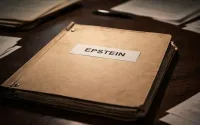Common Dreams/ Published on Tuesday, November 14, 2006 by the Inter Press Service
When mortars and rockets fall silent in the world's battle zones, the killings do not necessarily end with ceasefires and peace talks.The reason? Myriads of unexploded ordnance -- including deadly cluster bombs, booby traps and anti-personnel landmines -- left behind by warring parties. According to the United Nations, up to one million pieces of unexploded ordnance are "leftovers" from the war in southern Lebanon last August. And, so far, more than 58,000 cluster bomblets have been cleared and destroyed. The death toll from cluster munitions -- more than three months after the conflict -- is 22, six of them children, while 134 injuries have been reported from all types of unexploded ordnance. "Wars do not always end with the last gunshot or the signing of a peace agreement," says U.N. Secretary-General Kofi Annan. Long after hostilities cease, he points out, the human consequences continue because people continue to be killed or injured by abandoned explosive ordnance. "These remnants of war, some of which can remain in place for decades, are a threat to civilians and military personnel alike, and impede humanitarian assistance, peacekeeping, post-conflict reconstruction and development," said Annan, as he welcomed the entry into force of a new international agreement on unexploded ordnance. The new agreement, titled Protocol V on Explosive Remnants of War, requires member states "to take remedial measures to clear, remove or destroy unexploded ordnance or abandoned explosive ordnance as early as possible after the end of hostilities." An integral part of the 1980 U.N. Convention on Conventional Weapons, the new agreement entered into force on Sunday. But Steve Goose, director of the Arms Division at Human Rights Watch, is sceptical. He said the protocol -- which is really an amendment to the existing Convention -- should reinforce the urgent need to clean up the deadly leftovers of war. "But because the text is so weak, the success of the protocol will depend on aggressive and thorough implementation by governments," he added. The protocol was adopted in November 2003, but became part of international law only on Sunday after it received the necessary ratifications by 20 countries. Annan said the entry into force of a legal instrument is not an end in itself, but rather the beginning of a long series of actions. "I urge those states that have not yet done so to adhere to this instrument," he said, pointing out that "this is a matter of survival for millions of civilians." According to Annan, one of the most "horrendous consequences" of armed conflict is the legacy left behind by "silent killers": landmines, booby traps, cluster bombs and other improvised explosive devices. Both during and after hostilities, he said, they kill indiscriminately and maim vulnerable civilians, especially women and children. Max Gaylard, director of the U.N. Mine Action Service, said the protocol calls on states parties and parties to armed conflicts to provide information on the location of explosive remnants of war to humanitarian missions and organisations. "This is welcomed by all of us at the United Nations," he added. Last month, U.N. Under-Secretary-General for Humanitarian Affairs Jan Egeland denounced Israel's use of cluster bombs during its conflict with Lebanon last July-August. Describing the use of these weapons as "immoral", Egeland said that U.N. teams had identified some 359 separate cluster bomb strike locations that are contaminated with as many as 100,000 unexploded bomblets dropped by Israeli forces inside Lebanon. "What's shocking and I would say completely immoral is that 90 percent of the cluster bomb strikes occurred in the last 72 hours of the conflict, when we knew there would be a (Security Council) resolution, when we knew there would be an end (to the conflict)," he said. Every day, he said, people are maimed, wounded and are killed by these ordnances. "As a matter of urgency, I call on all states to implement an immediate freeze on the use of cluster munitions. The freeze is essential until the international community puts in place effective legal instruments to address urgent humanitarian concerns about their use," Egeland said. In a statement released last week, Human Rights Watch said the protocol -- in addition to making a state responsible for clearing all explosive remnants of war in territory under its control -- calls on states to provide warnings, risk education and other measures to protect the civilian population. Moreover, a state that uses weapons that leave behind explosive remnants must provide assistance for clearance even if the territory is not under its control. Amnesty International, which is calling for a moratorium on the use of cluster bombs, has accused both British and U.S. military forces of using these deadly weapons in Iraq. The London-based human rights organisation said the use of cluster bombs on civilian targets is a "grave violation of international humanitarian law". The United Nations said last week that engineers of the U.N. Interim Force in Lebanon (UNIFIL) have conducted 58 "controlled demolition(s) of pieces of unexploded ordnance". At the same time, U.N. de-mining officials have expressed concern over nearly one million pieces of such ordnance left behind in southern Lebanon. Meanwhile, the U.N. children's agency UNICEF has warned that children in Lebanon face "a terrible situation" because of the presence of large number of unexploded ordnance in fields from across schools. According to Human Rights Watch, states parties now gathered in Geneva for the Third Review Conference of the Convention on Conventional Weapons (CCW) are debating the possibility of regulating cluster munitions. The meeting began Nov. 7 and will conclude Nov. 17. At a meeting last month, six CCW state parties (Austria, Holy See, Ireland, Mexico, New Zealand and Sweden) asked that member states give consideration to a legally binding instrument that addresses the humanitarian concerns posed by cluster munitions. The proposal was endorsed by 12 additional states (Argentina, Costa Rica, Czech Republic, Denmark, Germany, Hungary, Liechtenstein, Portugal, Slovakia, Slovenia, Spain and Switzerland), "and many others are signaling their intention to do so," Human Rights Watch said. "We have reached a tipping point on cluster munitions", said Goose. "It's no longer a small group of isolated states calling for a new treaty. Many countries realising that negotiations not only should happen, but will happen, want to be on board from the start."






